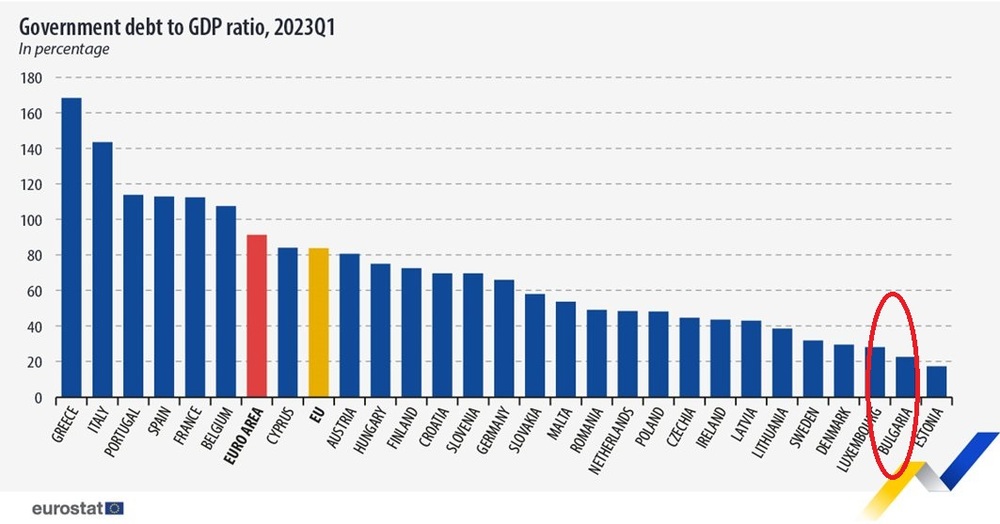Bulgaria retained its second place in the European Union among the countries with the lowest debt, according to the latest official Eurostat data from July this year, the Finance Ministry said on Monday.
By the end of the first quarter of the year, the ratio of general government debt to this country's gross domestic product (GDP) stood at 22.5%. The only EU Member State with lower ratio was Estonia with the EU average at 83.7%.
In recent years, there has been a steady downward trend in Bulgaria's government debt-to-GDP levels, and this has persisted even after the isolated increase in 2020 following the COVID-19 pandemic.
Bulgaria's general government debt-to-GDP ratio was 25.1% of GDP in 2017, 22.1 % in 2018, 20% in 2019, 24.5% in 2020, 23.9% in 2021, 22.9% in 2022 and is expected to be around 22% by the end of 2023, the release noted.
The Finance Ministry reminded that the State Budget Act for 2023, adopted by the Parliament on July 28, provides for a maximum level of the new state debt of BGN 7.5 billion. Of this, approximately BGN 3 billion is needed for the refinancing of outstanding debt, which the caretaker government has already implemented in January, including for the maturity of seven-year Eurobonds issued in March 2016 and for the maturity of 10.5-year domestic government securities issued in January 2013. The remaining about BGN 4.5 billion are earmarked to finance the cash deficit of 2.5% of GDP set and voted in the budget, the Ministry explained.
The press release also points out that the low levels of indebtedness, as well as the low cost of servicing public debt in Bulgaria, have been noticed not only by the EC but also by the world media - on October 12 the Economist magazine ranked Bulgaria first in the EU for the lowest debt servicing costs, even lower than Estonia.

